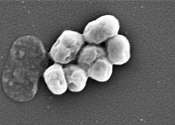A first in medical robotics: Autonomous navigation inside the body
Bioengineers at Boston Children's Hospital report the first demonstration of a robot able to navigate autonomously inside the body. In an animal model of cardiac valve repair, the team programmed a robotic catheter to find ...
Apr 24, 2019
0
405









